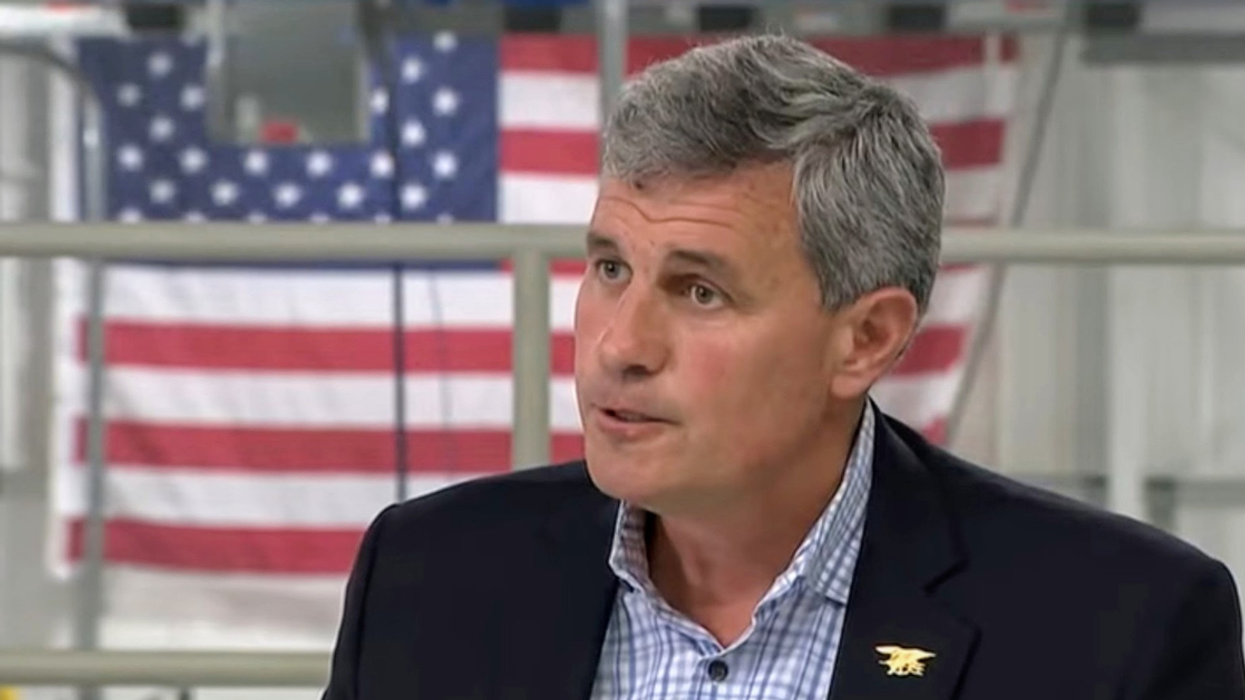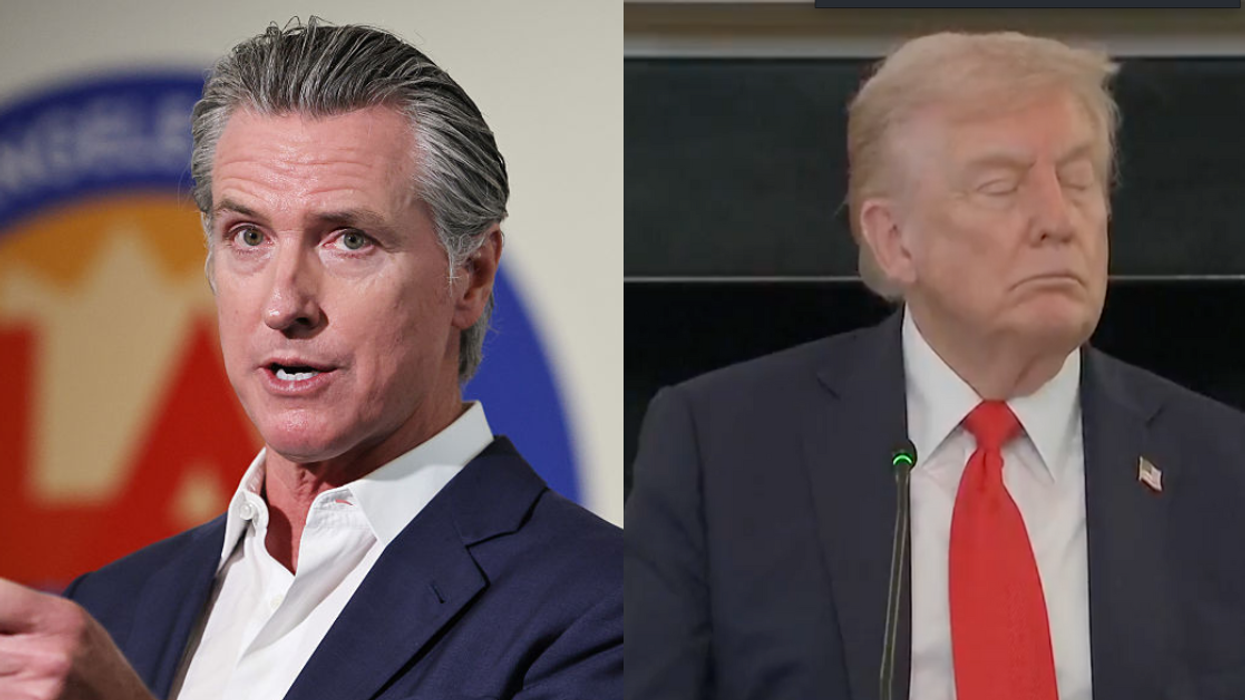At a January 10 press conference, New York City Mayor Bill de Blasio announced dual actions that will turn up the heat on oil titans. The mayor vowed to divest about $5 billion in citywide pension funds from companies that produce fossil fuels within the next five years. He also revealed a lawsuit against five massive oil companies––Exxon Mobil, Shell, BP, Chevron and Conoco Phillips––for billions of dollars worth of climate change-related damages the city has sustained.
The lawsuit charges these five major players with having produced 11% of all global warming-related gas emissions. Additionally, it alleges the companies obscured the devastating environmental impacts of fossil fuels for years.
In his remarks, de Blasio highlighted Hurricane Sandy as a paradigm of carbon emissions coming home to roost, calling the 2012 storm “a tragedy wrought by the actions of the fossil fuel companies.”
Perhaps tellingly, the suit came just after Exxon announced controversial plans to counter-sue cities that sue them regarding climate change. An Exxon rep responded to the suit via an emailed statement: “Reducing greenhouse gas emissions is a global issue and requires global participation and actions. Lawsuits of this kind — filed by trial attorneys against an industry that provides products we all rely upon to power the economy and enable our domestic life — simply do not do that.” A Chevron spokesperson replied in kind, claiming the suit does “nothing to address the serious issue of climate change.”
Several California-based lawsuits that sought to hold oil companies accountable for climate change have failed. Nevertheless, Michael Burger, director of the Sabin Center for Climate Change Law at Columbia University, remains optimistic that New York City’s suit could mark a sea change, releasing a floodgate of similar cases that would take fossil fuel producers to task for long-term damage wrought by emissions. If more and more towns and cities sue, “we might be able to see adequate pressure applied to these companies to inspire action on climate change.”
The pledge to divest from fossil fuels comes after a long, labor-intensive grassroots campaign. Following five years of community-based discussions, hearings, and a #DivestNY awareness campaign, a coalition of environmental organizations helped the movement gain momentum with the public, inevitably winning support from New York City and state lawmakers alike.
Their combined efforts culminated in official statements of support this December. New York City Comptroller Scott Stringer and New York Governor Andrew Cuomo separately outlined proposals to divest city and state pension funds from fossil fuel-linked companies. However, Cuomo still faces obstacles to an official pledge to divest state pension funds, primarily via pushback from State Comptroller Tom DiNapoli. In his recent State of the State address, Cuomo expressed a wish to work with DiNapoli to halt pension fund investments in "significant fossil fuel-related activities.”
Following these comments, DiNapoli, who manages the fund, cautioned against jumping into a divestment decision before thoroughly weighing financial consequences. He stressed that pension divestment might harm New Yorkers more than it would fossil fuel producers: “We believe climate change is real, climate risk is an issue that the pension fund should deal with. We have been dealing with it. But just divesting I don't think is going to put any of these companies out of business."
Crucially, de Blasio’s New York City-wide divestment pledge marks the first instance of a city divesting all pension funds from fossil fuel producers. Environmentalists hope other cities and states will follow suit.
350.org co-founder Bill McKibben noted the importance of a massive urban hub like New York City leading the way to complete fossil fuel divestment: “Coming from the capital of world finance, this will resonate loud and clear all over the planet. It’s a crucial sign of how fast the financial pendulum is swinging away from fossil fuels.”








 Lemon Juice 80S GIF
Lemon Juice 80S GIF  Michael Myers
Michael Myers  Give Thanks Eating GIF by I Heart Guts
Give Thanks Eating GIF by I Heart Guts  Gordon Ramsay Fox GIF by HULU
Gordon Ramsay Fox GIF by HULU  baking ann b. davis GIF by HULU
baking ann b. davis GIF by HULU 






 @timleesblee/TikTok
@timleesblee/TikTok @timleesblee/TikTok
@timleesblee/TikTok @timleesblee/TikTok
@timleesblee/TikTok @timleesblee/TikTok
@timleesblee/TikTok @timleesblee/TikTok
@timleesblee/TikTok @timleesblee/TikTok
@timleesblee/TikTok @timleesblee/TikTok
@timleesblee/TikTok @timleesblee/TikTok
@timleesblee/TikTok @timleesblee/TikTok
@timleesblee/TikTok @timleesblee/TikTok
@timleesblee/TikTok @timleesblee/TikTok
@timleesblee/TikTok @timleesblee/TikTok
@timleesblee/TikTok
 @skylr.m/TikTok
@skylr.m/TikTok @skylr.m/TikTok
@skylr.m/TikTok @skylr.m/TikTok
@skylr.m/TikTok @skylr.m/TikTok
@skylr.m/TikTok @skylr.m/TikTok
@skylr.m/TikTok @skylr.m/TikTok
@skylr.m/TikTok @skylr.m/TikTok
@skylr.m/TikTok @skylr.m/TikTok
@skylr.m/TikTok @skylr.m/TikTok
@skylr.m/TikTok @skylr.m/TikTok
@skylr.m/TikTok @skylr.m/TikTok
@skylr.m/TikTok @skylr.m/TikTok
@skylr.m/TikTok @skylr.m/TikTok
@skylr.m/TikTok @skylr.m/TikTok
@skylr.m/TikTok @skylr.m/TikTok
@skylr.m/TikTok